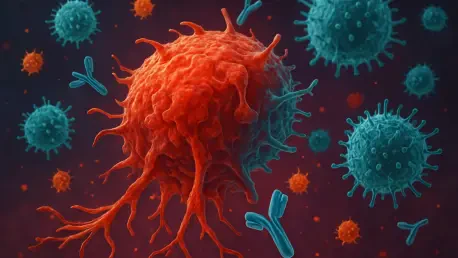
The advent of immunotherapy offered a powerful beacon of hope in the fight against advanced melanoma, yet for many patients and their families, that light has remained frustratingly out of reach. These revolutionary treatments, designed to unleash the body's own immune system against cancer, have

For countless individuals who have undergone mastectomies, the journey toward physical and emotional recovery is often complicated by the limitations of existing reconstructive surgeries. A groundbreaking prototype of an injectable paste, developed by researchers from human skin cells and detailed

As a leading expert in biopharma innovation and research, Ivan Kairatov offers a unique perspective on the evolving landscape of cancer treatment. His work focuses on translating complex clinical trial data into practical advancements that reshape patient care. Today, we delve into the RECIPROCAL

A concerning and rapid increase in bowel cancer diagnoses among younger adults has added a new layer of urgency to one of oncology's most persistent challenges: the ability of tumors to develop resistance to standard treatments. This growing crisis highlights a critical gap in medical science, as

The formidable challenge in modern oncology is not just eliminating cancerous cells, but dismantling the sophisticated biological fortresses that solid tumors construct to shield themselves from the body's own immune system. While immunotherapy has revolutionized cancer treatment, its success

A groundbreaking study has unraveled a sophisticated deception used by aggressive breast cancer to build a fortress against the body's immune system, but in doing so, the cancer inadvertently leaves the key to its own destruction lying in plain sight. Research from scientists at Sun Yat-Sen